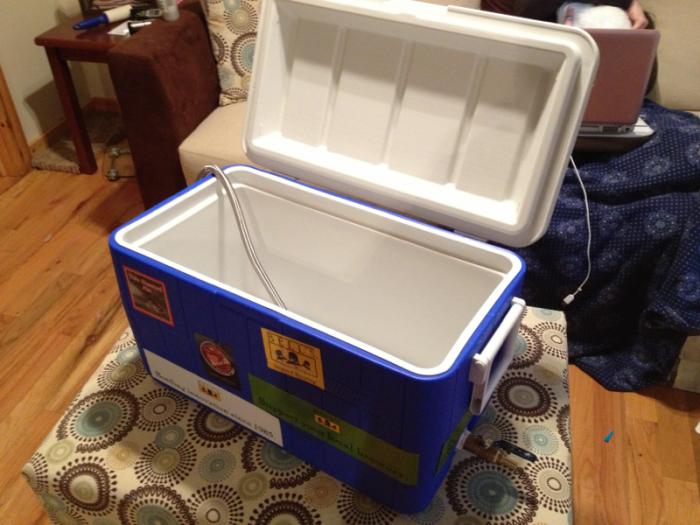Bit late for comment now but for those who may come later:
1) Stainless steel can, & often does rust, but generally the corrosion is mild & there is usually an identifiable reason.
2) There are many alloys designated as "Stainless Steel". They have each been developed for specific corrosion resistant duty.
3) In general engineering you are likely to come across the "18-8", or "18-10" austenitic types. Commonly referred to (correctly) as "Type 304", & "Type 316". 316 contains more Nickel & Chrome & costs more, but has superior corrosion resistance in most applications, almost always used in preference in the Marine Industry.
4) None of the above types perform well in environments where the "chloride ion" is present; IE salt water, sea water, chlorinated bleaches, & hydrochloric acid. Hence brewers are always warned not to use chlorine included cleaning products with stainless steel equipment.
5) In the event that you see some mild corrosion on stainless components; first attempt to "passivate" the surface with phosphoric acid or nitric acid. Phosphoric in preference & it's easier to obtain - often from Marine Chandlers. Use a soft toothbrush, a little toothpaste & the acid; apply with gentle sc rubbing action & leave for 30 mins, then scrub clean, repeat if necessary.
SAFETY WARNING: Always use protective gloves & safety goggles, wash immediately any splashes on you with warm soapy water.
NEVER RISK INJURY TO YOURSELF just to do a bit of cleaning.




